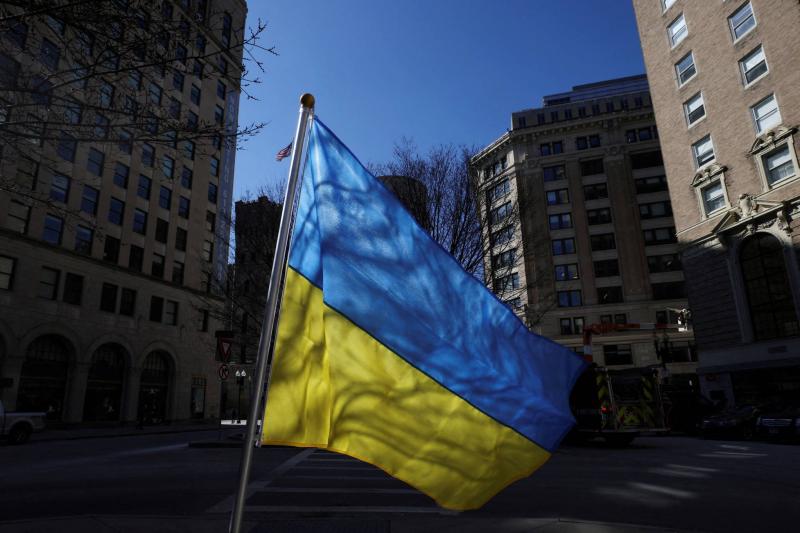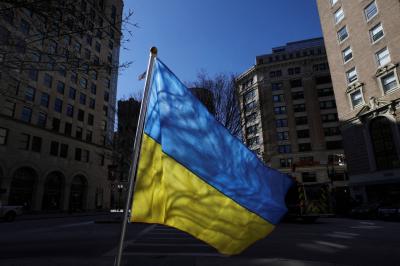Since the beginning of the Russian military operation in Ukraine, Poland had been at the forefront of sending military aid and equipment to Ukrainian forces. However, the situation changed recently when Polish Prime Minister Mateusz Morawiecki announced that his country would "stop arming Ukraine to focus on strengthening its own defense forces."
Ukraine now faces a new crisis with allies withdrawing support, which could lead to its inevitable defeat as it continues to resist on the battlefield for the past year and a half. On September 20, 2023, Morawiecki declared that Poland will no longer supply weapons to Ukraine, emphasizing the need to bolster Poland's own military capabilities. Poland was among the leading countries supporting Ukraine and a major provider of arms since Russia began its war in February 2022. Many military aids sent by Western countries to Kyiv transit through Polish territory.
The sharp decline in relations between the two neighboring countries stems from the dispute over Ukrainian grain imports into Poland, with no resolution in sight. The issue lies in Ukraine's desire to export its grain through vital land routes, as Russia is deliberately attacking ports on the Black Sea and the Danube River. However, Poland is trying to protect its own farmers and local products, thus refusing to allow Ukrainian grain to enter its markets simply so it can pass through to other EU countries.
For Poland's ruling Law and Justice Party, the equation is straightforward: farmers do not want Ukrainian grain in the country, and the party seeks the farmers' votes in the upcoming elections. Hence, it will work on their behalf. In the battle for votes, the Law and Justice Party positions itself as the strongest defender of Polish interests. Therefore, it is leveraging various strategies, including reevaluating how to assist Ukraine, along with other populist issues like immigration.
Russian Kremlin spokesman Dmitry Peskov indicated that "the escalation of tensions between Kyiv and its European allies is inevitable," in response to the ongoing disputes between Ukraine and Poland over grain exports. He stated, "We expect these frictions between Warsaw and Kyiv to increase," adding that tensions between Kyiv and other European capitals will grow over time, which is unavoidable.
The Polish authorities have no intention of handing over to Ukraine the modern weaponry they acquire for their army, as stated by Polish President Andrzej Duda. Last week, Poland extended its ban on Ukrainian grain imports to protect the interests of its farmers, provoking an open crisis with Kyiv despite the partnership between the two countries. In response, Ukraine lodged a complaint with the World Trade Organization against Poland, Slovakia, and Hungary, which have also maintained restrictions on Ukrainian grain despite Brussels announcing the lifting of those restrictions.
U.S. National Security Advisor Jake Sullivan noted that "Poland will continue to support Ukraine in its counter-offensive against the Russian military operation, despite the trade dispute between the two countries." He expressed concern when Poland announced the cessation of military aid to Ukraine, but added that "the Polish government clarified that the provision of equipment (weapons) will continue, including Polish howitzers, and that Warsaw continues to stand behind Ukraine."
Ukrainian presidential adviser Mykhailo Podolyak expressed confidence that "the alliance between Ukraine and Poland will endure despite disagreements with Warsaw over agricultural exports." In an interview with the newspaper "Laryboplyka," he emphasized the importance of considering the upcoming elections in Poland, highlighting the need to protect the interests of farmers and agricultural production. He reaffirmed that "supplies of weapons to Ukraine transit through Polish territory, and this will remain the case in the future." He concluded by expressing confidence that "after the elections, dialogue with our Polish friends will return to a friendly tone, and we will resolve all issues, both trade and partnership-related," as Polish partners recognize that "Russia poses the real threat."




